
Find Help
More Items From Ergsy search
-

Traditional Ground Burials
Relevance: 100%
-

What is a traditional ground burial?
Relevance: 97%
-

How much does a traditional ground burial cost in the UK?
Relevance: 80%
-

What environmental considerations are there for ground burials?
Relevance: 72%
-

Are there specific regulations for ground burials in the UK?
Relevance: 67%
-

Is embalming required for ground burial in the UK?
Relevance: 64%
-
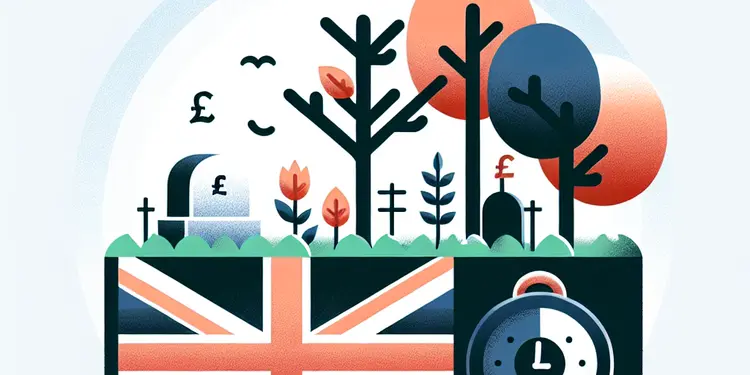
Can a ground burial be held at any time of the year?
Relevance: 64%
-

Do I need a coffin for a natural burial?
Relevance: 54%
-

What is the role of a funeral director in a traditional burial?
Relevance: 51%
-

What are the different methods of burial available in the uk?
Relevance: 49%
-
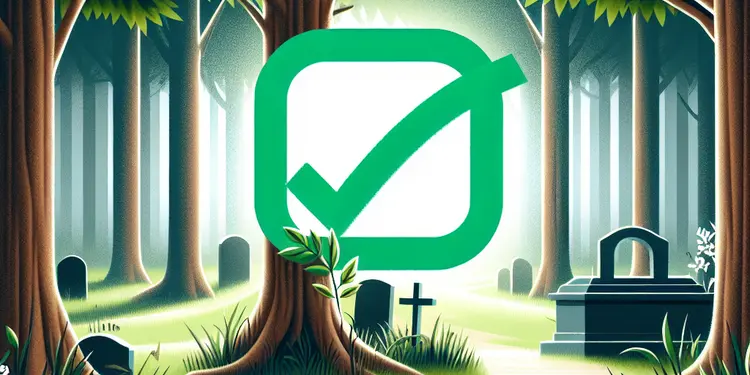
Are woodland burials legal in the UK?
Relevance: 47%
-

Alternative Burial Methods
Relevance: 46%
-

Are woodland burials environmentally friendly?
Relevance: 46%
-
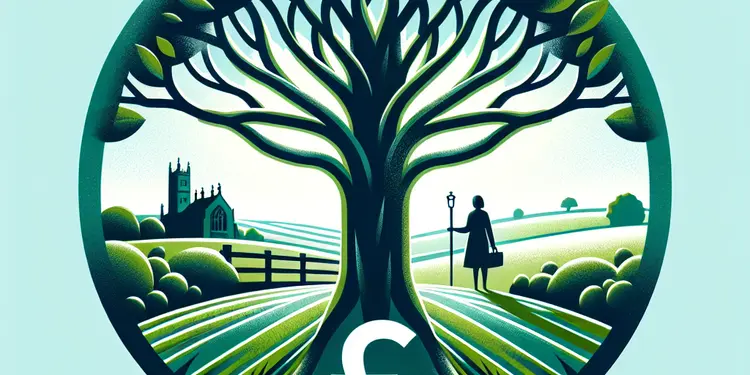
Is embalming allowed in natural burials?
Relevance: 45%
-
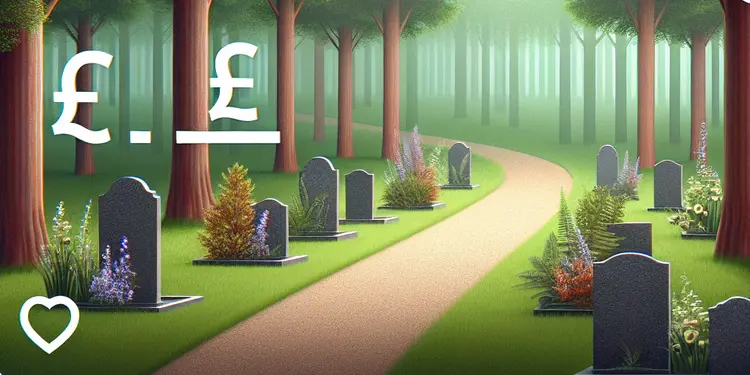
Can anyone be buried in a woodland burial site?
Relevance: 44%
-

What is a woodland burial?
Relevance: 44%
-

How are burial plots marked?
Relevance: 43%
-

How much does a woodland burial cost?
Relevance: 43%
-
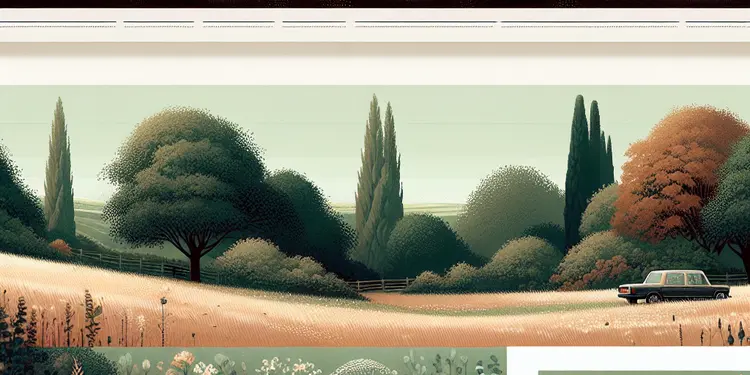
What is the difference between a woodland and natural burial?
Relevance: 42%
-
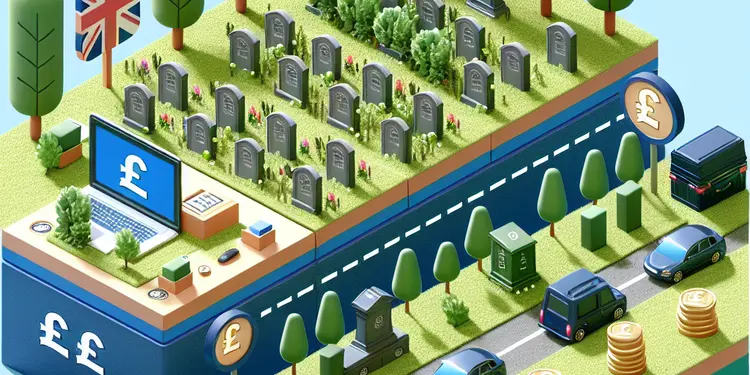
How do I choose a woodland burial site?
Relevance: 42%
-

Woodland and Natural Burials
Relevance: 41%
-

Burial at Sea
Relevance: 40%
-

Can I plant a tree on a woodland burial site?
Relevance: 40%
-

Can ashes be scattered at a woodland burial site?
Relevance: 39%
-
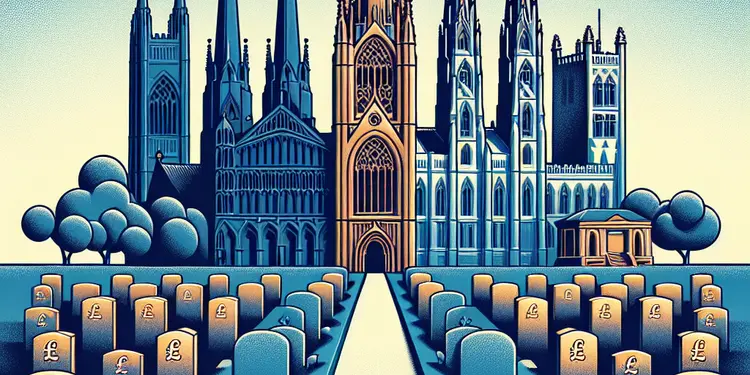
Is cremation more affordable than burial in the UK?
Relevance: 38%
-

Can I reserve a burial plot in advance?
Relevance: 37%
-

Why are council burial fees going up nearly 50% in the UK?
Relevance: 37%
-
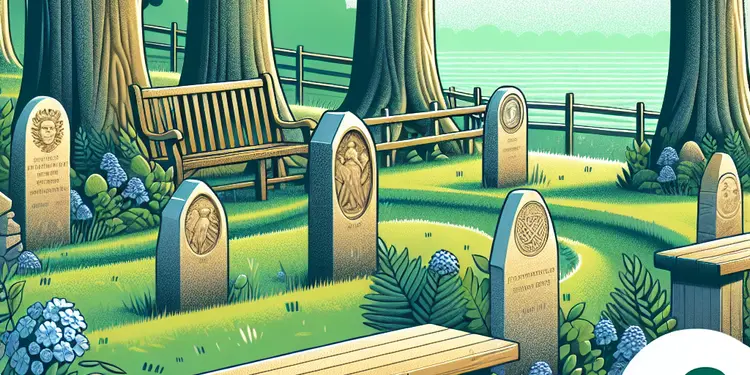
What types of memorials are allowed in woodland burial sites?
Relevance: 36%
-
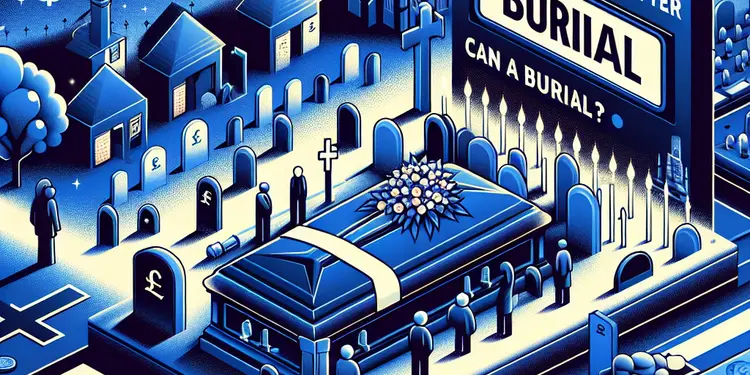
How soon after death can a burial take place?
Relevance: 36%
-
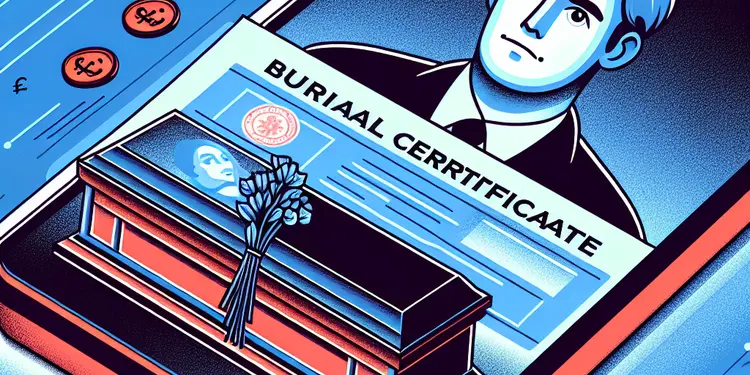
What is a burial certificate?
Relevance: 35%
-

Can I have a funeral ceremony at a woodland burial site?
Relevance: 35%
-
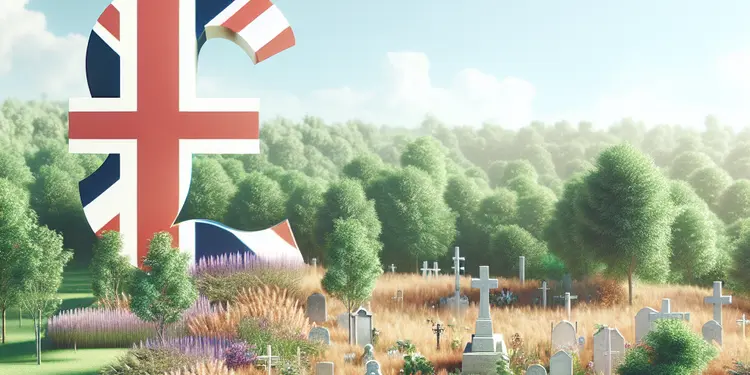
What happens if the woodland burial site is full?
Relevance: 34%
-

What is the difference between a cemetery and a churchyard?
Relevance: 29%
-

What is a green or eco-friendly funeral?
Relevance: 29%
-

What are the different types of funerals available?
Relevance: 28%
-

Are online banks cheaper than traditional banks?
Relevance: 27%
-
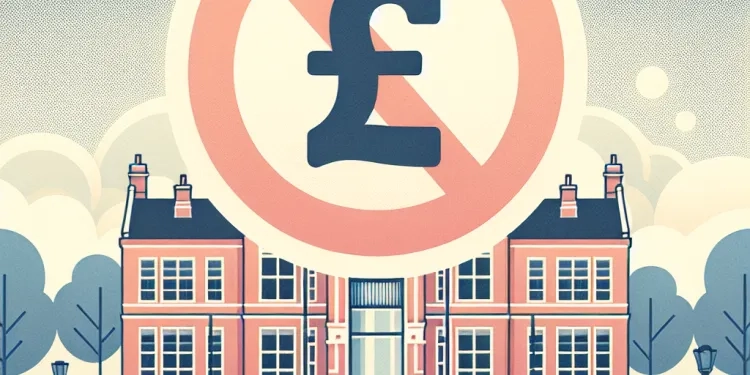
Calls to Ban Vapes Near School Grounds Gain Momentum
Relevance: 27%
-

How is ketamine different from traditional antidepressants?
Relevance: 27%
-

Are online banks cheaper than traditional banks?
Relevance: 26%
-

Can Paillon treatment be used alongside traditional therapies?
Relevance: 26%
Traditional Ground Burials: A Cultural Perspective in the United Kingdom
Historical Context
In the United Kingdom, traditional ground burials have been a core component of funeral practices for centuries. Originating from ancient customs and religious practices, these burials are often seen as a way to respect and honor the deceased. The practice is deeply rooted in cultural and social norms, with many families choosing burial sites that have personal or familial significance. Churches with graveyards have historically been central to this tradition, providing a sacred space for honoring loved ones.
Customs and Rituals
Traditional ground burials in the UK often involve a series of well-respected customs and rituals. Typically, the ceremony begins with a funeral service, which may take place in a church or another venue, where family and friends gather to pay their last respects. This gathering provides an opportunity for the community to support the bereaved family and celebrate the life of the deceased. After the service, the casket is transported to the burial site, where a brief graveside service is conducted. Rituals may include prayers, readings, and the laying of flowers as a symbol of remembrance.
Modern Considerations and Environmental Impact
In recent years, there has been growing awareness about the environmental impacts of traditional ground burials, leading to discussions about sustainable burial practices. Concerns about land use, chemical pollutions from embalming fluids, and coffin materials have prompted some people to consider more eco-friendly options. Natural or green burials have become more popular, where bodies are interred in biodegradable containers and without embalming, allowing for the natural decomposition process and minimizing environmental impact.
Legal and Regulatory Aspects
In the UK, the process of conducting a traditional ground burial is governed by legal and regulatory frameworks designed to ensure dignified and proper practices. Burial plots are typically managed by local authorities, churchyards, or privately owned cemeteries. Planning regulations and laws such as the Burial Act are in place to govern the establishment and maintenance of cemeteries, ensuring they are appropriately managed and that public health is protected. Families often need to acquire the right of burial for a specific plot and ensure compliance with any associated regulations or requirements.
Traditional Ground Burials: A Cultural View in the United Kingdom
History
In the UK, burying people in the ground has been an important part of funerals for a long time. This tradition comes from old customs and religious beliefs. People think it is a way to show respect for those who have died. Families often choose special places for burials, like family plots. Churches with graveyards have been a big part of these traditions, giving a special place to remember loved ones.
Customs and Rituals
In the UK, ground burials include important customs and rituals. Usually, there is a funeral service. This can be in a church or another place. Here, family and friends come together to say goodbye. It is a time for the community to support the family and remember the person who has died. After the service, the coffin is taken to the burial place. There, a short service might happen, which can include prayers, readings, or laying flowers on the grave to remember the person.
Modern Thoughts and Nature
Lately, people talk more about how ground burials affect the environment. Using land, chemicals from embalming, and the materials of coffins are concerns. Some people now choose eco-friendly burials. In these "green" burials, bodies are placed in containers that break down naturally without chemicals. This helps the body return to nature and is better for the environment.
Rules and Laws
In the UK, burials must follow certain laws to make sure everything is done with respect. Local councils, churches, or private owners manage the burial plots. There are rules like the Burial Act that control how cemeteries are set up and maintained. This protects public health and ensures the cemeteries are well managed. Families need to get permission for a specific burial plot and follow the rules to make sure everything is legal.
Frequently Asked Questions
What is a traditional ground burial?
A traditional ground burial involves placing the deceased in a casket which is then buried in the ground, usually in a cemetery plot.
How much does a traditional ground burial cost in the UK?
Costs can vary widely depending on location, choice of casket, and services, but typically range from £3,000 to £6,000 for a basic service.
Are there specific regulations for ground burials in the UK?
Yes, the UK has regulations regarding burial plots, depth of burial, caskets, and paperwork. These can vary by local authority.
Can I reserve a burial plot in advance?
Yes, many cemeteries in the UK allow for the purchase of burial plots in advance. This often involves a long-term lease.
What is a pre-paid funeral plan?
A pre-paid funeral plan allows individuals to pay for their funeral services in advance, locking in current prices and ensuring arrangements are made.
What is the difference between a cemetery and a churchyard?
A cemetery is a designated burial ground that can be secular or associated with any faith, while a churchyard is specifically the burial ground of a church, often reserved for members of that parish.
Can personal items be buried with the deceased?
Yes, personal items such as letters, photographs, or mementos can often be included in the casket, subject to regulations regarding non-biodegradable or hazardous items.
Is embalming required for ground burial in the UK?
Embalming is not a legal requirement in the UK, but may be recommended by funeral directors for certain services or if there will be a delay before the burial.
How are burial plots marked?
Burial plots are typically marked with headstones, plaques, or other memorial markers that display the deceased’s name, dates of birth and death, and possibly an epitaph.
What environmental considerations are there for ground burials?
Traditional burials can have environmental impacts such as land use and soil contamination from embalming chemicals, but biodegradable caskets and green burials are alternatives that lessen these effects.
What support is available for funeral costs in the UK?
The UK government offers a Funeral Expenses Payment for those on certain benefits, helping cover some basic costs of a funeral.
Can a ground burial be held at any time of the year?
Yes, ground burials can be conducted at any time of the year, although availability of services may be affected by weather conditions or cemetery schedules.
What is a burial certificate?
A burial certificate, also known as a certificate for burial or cremation, is an official document issued by the Registrar allowing the burial to proceed legally.
How soon after death can a burial take place?
In the UK, a burial can only take place after the death has been registered and a burial certificate obtained, usually one to two weeks after death.
What is the role of a funeral director in a traditional burial?
A funeral director assists with the planning and organization of the funeral service, including the procurement of necessary paperwork, coordination with the cemetery, and various other logistical aspects of the service.
What is a Traditional Ground Burial?
A traditional ground burial is when a person who has died is placed in a coffin and then buried in the ground at a cemetery. It is a way people have used for a long time to say goodbye to loved ones.
When someone dies, their body is often put in a special box called a casket. This box is then buried in the ground at a place called a cemetery.
How much does it cost to have a regular burial in the ground in the UK?
The cost of a funeral can change a lot depending on where you are, what type of coffin you choose, and what services you want. But usually, it costs between £3,000 and £6,000 for a simple funeral.
Are there special rules for burials in the ground in the UK?
In the UK, there are special rules for burying someone in the ground. Here are some things to know:
- You might need to get permission from the local council.
- Sometimes, you need a death certificate and a doctor's note.
- There are rules about what kind of coffin you can use.
- Some places may have rules about where you can bury someone.
It can help to ask a funeral director for advice. They know about these rules and can help you understand them.
Yes, the UK has rules about where you can bury people, how deep, and which coffins you can use. You need to fill out some forms too. These rules can be different depending on where you live.
Can I book a place to be buried?
Yes, you can book your burial place to use later.
If you want help, you can:
- Ask a family member or friend.
- Use simple words when talking about it.
- Write down any questions you have.
Yes, in the UK, you can buy a place to be buried before you need it. This is called a long-term lease.
What is a pre-paid funeral plan?
A pre-paid funeral plan is a way to pay for a funeral before it happens. It means you pay now, so your family does not have to worry about money later.
Tools to help you:
- Ask someone you trust to read it with you.
- Use a dictionary if you find new words.
- Break it down into small parts to understand better.
A pre-paid funeral plan is a way to pay for a funeral before it happens. This means you pay ahead of time. You don't have to worry about prices going up in the future, and you have everything planned out.
Here's how you can make it easier:
- Break the information into smaller parts.
- Use simple words and short sentences.
- Read the text out loud to help understand.
- Ask a friend or family member for help if needed.
How are a cemetery and a churchyard different?
A cemetery is a place where people are buried when they die. It can be big with many graves. Cemeteries are usually not next to a church.
A churchyard is a special type of cemetery. It is a graveyard that is found next to a church. It is often smaller than a cemetery.
Try using these helpful techniques:
- Pictures: Look at pictures of a cemetery and a churchyard to see how they look different.
- Ask someone: Talk to someone who can explain it with simple words and examples.
A cemetery is a place where people are buried after they die. It can belong to any religion or none at all. A churchyard is a special burial place next to a church. Usually, it is for people who go to that church.
Can you bury things with someone who has died?
Yes, you can bury special things with a person who has died. These can be things they loved or that remind you of them.
If you need help understanding this, ask a friend or family member. They can help explain it to you.
Yes, you can put special things like letters, photos, or keepsakes in the casket. Make sure they are safe and allowed by rules.
Do you need to use chemicals on a body before burying it in the UK?
Bodies can be buried without using chemicals. This is called "embalming." You don’t have to do this before burying someone.
Ask the person who helps with funerals for advice. They can explain what to do and help you with everything.
In the UK, you do not have to do embalming by law. But, funeral directors might suggest it. They might say it is a good idea if you need certain services or if the burial will take a long time to happen.
How do we show where a person is buried?
We put special things on the ground to show where someone is buried. These things can be stones with names, flowers, or signs.
You can also ask someone for help if you can't find a burial place. Maps or guides at a cemetery might help too.
When someone is buried, you can find their grave because it has a special marker. This marker is like a sign that shows who is buried there. It can be a stone, a plaque, or another kind of sign. It usually shows the person's name, when they were born, and when they died. Sometimes, there are also kind words written about them.
If reading is hard, you can ask someone to help read with you. You can also try using audiobooks or picture books to help understand words better.
What should we think about for burials in the ground?
When burying people in the ground, there are things to think about that help our planet.
Here are some things we can do:
- Use a coffin made from natural materials. This helps it break down easier.
- Pick a place where it is safe to bury people. This helps protect water and plants nearby.
- Ask for help from experts who know about nature and burials.
Using these tips can help take care of the Earth.
When people are buried, it can sometimes hurt the environment. This happens because it uses up land and some chemicals can get into the ground. But there are other ways that are better for nature. People can use coffins that break down naturally or have a special kind of burial that is kinder to the earth.
Help with Funeral Costs in the UK
If you need help paying for a funeral, there are ways to get support. You can ask for money from the government to help pay for things like the coffin and flowers.
You can call a charity for advice. They can tell you what to do next.
It's a good idea to talk to the funeral director. They know what things cost and can help you make a plan.
It helps to write a list of what you need. You can ask family or friends to look at the list with you.
The UK government gives money to help pay for a funeral if you get certain benefits. This is called a Funeral Expenses Payment. It helps with some of the basic costs of a funeral.
Can you have a burial in the ground at any time of the year?
Yes, you can bury someone in the ground in any season. You can do it in spring, summer, autumn, or winter.
If you have trouble reading, you can ask someone to help you read. You can also use tools that read the words to you or make the words bigger.
Yes, you can bury someone in the ground at any time of the year. But sometimes the weather or the cemetery's plans can change when it happens.
What is a burial certificate?
A burial certificate is a piece of paper.
It says a person has died and been buried.
This paper helps with important things like saying goodbye and making sure everything is done properly.
If you need help reading, ask someone you trust.
You can also use tools like reading pens or apps that help read words out loud.
A burial certificate is an important paper. It is also called a certificate for burial or cremation. It comes from the Registrar. This paper says it is okay to have a burial.
Here are some things to help understand better:
- Read slowly and take your time.
- Use a ruler or your finger to follow the words.
- Ask someone for help if you don't understand.
When can someone be buried after they die?
When a person dies, their family might plan a burial. A burial is when the person's body is placed in the ground.
If you need help planning a burial, you can ask a friend, a family member, or a funeral director. A funeral director is someone who knows a lot about burials and can help you make all the plans.
To understand more, you can use tools like pictures or videos that show what happens at a burial. You can also talk to someone who can explain things clearly and slowly.
In the UK, a person can be buried after they have died. You have to register the death first and get a paper called a burial certificate. This usually takes one to two weeks after the person dies.
What does a funeral director do when someone is buried?
A funeral director helps organise and plan things when someone dies. They make sure that everything goes smoothly at the funeral. Here is what they do:
- They talk to the family to understand their wishes.
- They help prepare the body for the burial.
- They organise the funeral service and where it will be held.
- They make arrangements with the cemetery for the burial.
- They provide support and guidance to the family during this time.
To help understand better, you can:
- Use pictures or videos to see what happens at a funeral.
- Ask someone you trust to explain things you don't understand.
- Use simple words and talk slowly when discussing funerals.
A funeral director helps plan and organize a funeral. They take care of papers needed for the funeral, work with the cemetery, and handle other important things to make sure the funeral goes smoothly.
Useful Links
This website offers general information and is not a substitute for professional advice.
Always seek guidance from qualified professionals.
If you have any medical concerns or need urgent help, contact a healthcare professional or emergency services immediately.
Some of this content was generated with AI assistance. We’ve done our best to keep it accurate, helpful, and human-friendly.
- Ergsy carfully checks the information in the videos we provide here.
- Videos shown by Youtube after a video has completed, have NOT been reviewed by ERGSY.
- To view, click the arrow in centre of video.
- Most of the videos you find here will have subtitles and/or closed captions available.
- You may need to turn these on, and choose your preferred language.
- Go to the video you'd like to watch.
- If closed captions (CC) are available, settings will be visible on the bottom right of the video player.
- To turn on Captions, click settings .
- To turn off Captions, click settings again.
More Items From Ergsy search
-

Traditional Ground Burials
Relevance: 100%
-

What is a traditional ground burial?
Relevance: 97%
-

How much does a traditional ground burial cost in the UK?
Relevance: 80%
-

What environmental considerations are there for ground burials?
Relevance: 72%
-

Are there specific regulations for ground burials in the UK?
Relevance: 67%
-

Is embalming required for ground burial in the UK?
Relevance: 64%
-

Can a ground burial be held at any time of the year?
Relevance: 64%
-

Do I need a coffin for a natural burial?
Relevance: 54%
-

What is the role of a funeral director in a traditional burial?
Relevance: 51%
-

What are the different methods of burial available in the uk?
Relevance: 49%
-

Are woodland burials legal in the UK?
Relevance: 47%
-

Alternative Burial Methods
Relevance: 46%
-

Are woodland burials environmentally friendly?
Relevance: 46%
-

Is embalming allowed in natural burials?
Relevance: 45%
-

Can anyone be buried in a woodland burial site?
Relevance: 44%
-

What is a woodland burial?
Relevance: 44%
-

How are burial plots marked?
Relevance: 43%
-

How much does a woodland burial cost?
Relevance: 43%
-

What is the difference between a woodland and natural burial?
Relevance: 42%
-

How do I choose a woodland burial site?
Relevance: 42%
-

Woodland and Natural Burials
Relevance: 41%
-

Burial at Sea
Relevance: 40%
-

Can I plant a tree on a woodland burial site?
Relevance: 40%
-

Can ashes be scattered at a woodland burial site?
Relevance: 39%
-

Is cremation more affordable than burial in the UK?
Relevance: 38%
-

Can I reserve a burial plot in advance?
Relevance: 37%
-

Why are council burial fees going up nearly 50% in the UK?
Relevance: 37%
-

What types of memorials are allowed in woodland burial sites?
Relevance: 36%
-

How soon after death can a burial take place?
Relevance: 36%
-

What is a burial certificate?
Relevance: 35%
-

Can I have a funeral ceremony at a woodland burial site?
Relevance: 35%
-

What happens if the woodland burial site is full?
Relevance: 34%
-

What is the difference between a cemetery and a churchyard?
Relevance: 29%
-

What is a green or eco-friendly funeral?
Relevance: 29%
-

What are the different types of funerals available?
Relevance: 28%
-

Are online banks cheaper than traditional banks?
Relevance: 27%
-

Calls to Ban Vapes Near School Grounds Gain Momentum
Relevance: 27%
-

How is ketamine different from traditional antidepressants?
Relevance: 27%
-

Are online banks cheaper than traditional banks?
Relevance: 26%
-

Can Paillon treatment be used alongside traditional therapies?
Relevance: 26%


